Read an excerpt from EYE ON THE STRUGGLE by James McGrath Morris (HarperCollins, February 2015).
Continue reading
Category Archives: Web Extras
Web-only Extra: Alfie Kohn on the Common Core
Podcast: Play in new window | Download
Subscribe: Apple Podcasts | RSS
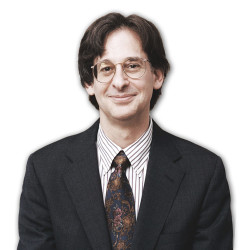 WV interviewed Alfie Kohn about his book, The Myth Of The Spoiled Child (Da Capo Lifelong Books, March 2014.)Â
WV interviewed Alfie Kohn about his book, The Myth Of The Spoiled Child (Da Capo Lifelong Books, March 2014.)Â
We also asked Kohn about his views on the Common Core and alternative education, but weren’t able to include it in the show. Here’s that segment.
Alfie Kohn is a frequent lecturer on the topics of education and parenting, and the author of twelve previous books, including The Homework Myth, Punished by Rewards, and Unconditional Parenting. His work has been covered by the New York Times, Washington Post, Boston Globe, and USA Today, and he has appeared on CNN, BBC, and numerous NPR shows. His website is at alfiekohn.org.
Blowback in The Middle East: Matthew Hoh on Torture, Veteran Suicide & Endless War
Podcast: Play in new window | Download
Subscribe: Apple Podcasts | RSS
Matthew Hoh
A few weeks ago, WV aired an interview with New York Times national security reporter, James Risen about his book, Pay Any Price. One of the people Risen writes about in that book is Iraq War veteran and ex-Marine company commander, Matthew Hoh. In the years since his deployment, he suffered from combat-related PTSD so severe that he came close to suicide.
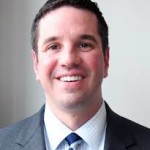
After Iraq, Hoh worked for the State Department in Afghanistan, but in 2009, he resigned in protest over US strategic policy and goals in that country.
Francesca spoke with him just after the US Senate’s report on torture was released in November 2014 about the blowback caused by US policy in the Middle East, including torture. They also discussed Hoh’s analysis of ISIS, moral injury affecting verterans, the epidemic of veterans’ suicides and his own PTSD.
Matthew Hoh is a Senior Fellow at the Center for International Policy and former Director of the Afghanistan Study Group. In 2010, Matthew was named the Ridenhour Prize Recipient for Truth Telling. He writes on issues of war, peace and post-traumatic stress disorder recovery at matthewhoh.com.
Katrina vanden Heuvel, The Snowden Interview
Podcast: Play in new window | Download
Subscribe: Apple Podcasts | RSS

On October 6, Nation editor and publisher Katrina vanden Heuvel and contributing editor Stephen F. Cohen sat down in Moscow for a wide-ranging discussion with Edward Snowden, where he shared his thoughts on the surveillance state, the American political system and the price heÂ’s paid for his understanding of patriotism.
The conversation lasted for nearly four hours and has been distilled into an in-depth article in this week’s edition of the Nation magazine. Francesca Rheannon of Writers Voice spoke with Katrina van den Heuvel about the interview with Snowden, as well as her thoughts on the impact the Snowden revelations have had on the US press.
Kathy Engel reads “Harvesting Strawberries”
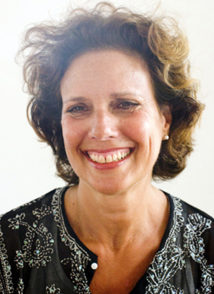
Poet Kathy Engel reads her poem “Harvesting Strawberries.”
Harvesting Strawberries
In summer
my teenage daughters
hair waving freckles,
legs and arms swinging,
walk barefoot to the garden in our back yard,
pick greens,
wash them, make salad
or cook with olive oil and garlic
and we eat together
on the wooden table under the mimosa tree
beside hammocks and chimes,
then drive or walk three miles to plunge in the Atlantic.
On January 4, 2005
six Palestinian children ages eleven to seventeen
harvesting strawberries
were killed by Israeli military
paid, in part, with dollars we send in taxes
from our jobs.
A newspaper photo showed an almond eyed boy
carrying the body of his younger brother.
The children were harvesting strawberries.
Kathy Engel January 6, 2005
(Thanks to East End Report for the audio and text.)
Betty Medsger (THE BURGLARY) on the FBI’s Blunder in Camden, NJ
Podcast: Play in new window | Download
Subscribe: Apple Podcasts | RSS
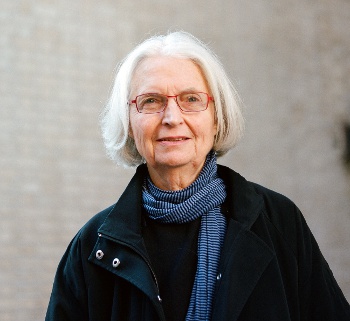
Betty Medsger talks about a colossal blunder committed by the FBI during its investigation of the burglary — its prosecution of what turned out to be a totally unrelated incident in Camden, NJ that left the FBI with some serious egg on its face.
It was the arrest and prosecution of a large group of antiwar activists who planned a break-in at a draft board office. The FBI was sure the break-in was linked to the burglary of the Media, PA FBI office. But it wasn’t. Find out what happens by listening to this excerpt.
Listen to this Web-only excerpt about the Camden 28Â from our longer interview with Betty Medsger about her book, The Burglary.
Amy Dryansky reads from Grass Whistle
Podcast: Play in new window | Download
Subscribe: Apple Podcasts | RSS
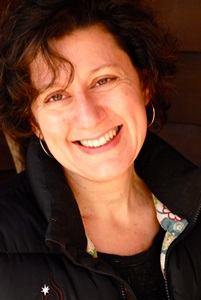 Amy Dryansky reads her poem “Lost and Found” from her poetry collection Grass Whistle.
Amy Dryansky reads her poem “Lost and Found” from her poetry collection Grass Whistle.
Grass Whistle has been named a “must-read” by the Massachusetts Center for the Book and is one of six finalists for the MA Book Award in Poetry.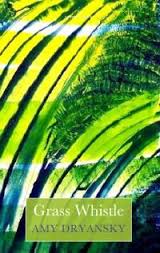
Martine Bellen, THE WABAC MACHINE: Unabridged Interview
Podcast: Play in new window | Download
Subscribe: Apple Podcasts | RSS

Reading the poetry of Martine Bellen is an excursion into a fascinating labyrinth of language that evokes multiple meanings. Her work is more to be experienced with the heart than dissected with the mind.
Her latest poetry collection is The Wabac Machine — with reference both to the Rocky and Bullwinkle Show, as well as to the past iterations of the internet. Fellow poet Charles North wrote:
Martine Bellen’s psychological and linguistic adventures in poetry are unlike anyone else’s. Celebrating the instabilities of our experience, her poems maneuver kaleidoscopically between ordinary life and myth or fairy tale, vital human concerns such as identity and dreamlike atmospheres where nothing stays as it appears for long. Her “host of unlikely divinities” display a reality that is never ordinary, always evocative.
Bellen is the author of eight collections of poetry including Tales of Murasaki and Other Poems, which won the National Poetry Series Award; as well as the novella 2X(Squared) and several librettos for opera. Bellen is a contributing editor of the literary journal Conjunctions.
A Zen practitioner, Bellen says there is an intimate connection between Zen Buddhism and poetry — a connection that informs her work. She explores that connection more deeply in the unabridged version of our conversation.
Russell Steven Powell Reads “Border Crossings”
Podcast: Play in new window | Download
Subscribe: Apple Podcasts | RSS

(photo by Bar Lois Weeks)
Russell Steven Powell is a publisher, writer, artist, poet, filmmaker, blogger and agricultural historian based in Hatfield Massachusetts. For decades, he’s written about the arts, the environment, agriculture and education in the Connecticut River Watershed. He spoke about his work on Episode Six of Writers Voice’s special series, The River Runs Through Us.
Powell’s work is deeply committed to the intersection of the natural landscape and our presence in it. His work searches for meaning in the natural world and finds it in paying attention to the subtle, the present and the ever-changing landscape. His writing and artwork can be found at his blog, russpowell.net. Here he reads his essay, “Border Crossings.”
Our thanks to Mass Humanities for their support for this series.
Mike Feder Audio Extra
Podcast: Play in new window | Download
Subscribe: Apple Podcasts | RSS
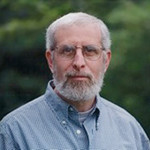
Radio host, monologist and author Mike Feder talks about threading the fine line between tragedy and comedy in writing his memoir, A Long Swim Upstream.
Les Leopold, HOW TO MAKE A MILLION DOLLARS AN HOUR, full interview
Podcast: Play in new window | Download
Subscribe: Apple Podcasts | RSS

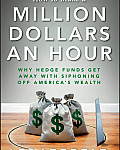 Full interview with Les Leopold about his new book HOW TO MAKE A MILLION DOLLARS AN HOUR: Why Hedge Funds Get Away with Siphoning Off America’s Wealth.
Full interview with Les Leopold about his new book HOW TO MAKE A MILLION DOLLARS AN HOUR: Why Hedge Funds Get Away with Siphoning Off America’s Wealth.
Rilla Askew, KIND OF KIN Excerpt
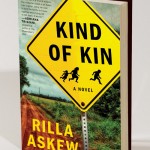 Sunday, February 17, 2008, 12:30 PM
Sunday, February 17, 2008, 12:30 PM
Sweet Kirkendall’s house, Cedar, Oklahoma
“Your grandpa is a felon,“ Aunt Sweet said. “A felon and a Christian. He says he’s a felon because he’s a Christian. Now, what kind of baloney is that?” She jerked the bib strings tight around Mr. Bledsoe’s neck. The old man coughed. “Sorry, Dad.” Aunt Sweet loosened the ties, snatched a baby food jar off the table. She pointed the spoon in her left hand at me like I might be fixing to argue. “Tell him I’ll be up there tomorrow. You tell him I said he’s got a serious amount of explaining to do.” She scooped up a dab of prunes. “Open your mouth, Dad. Carl Albert, hurry up.”
My cousin kept licking the Cheese Whiz out the sides of his sandwich like we had all the time in the world, which we didn’t. Visiting hours start at one, the preacher said, and it was already twelve thirty. I heard a car motor outside and I ran to the front room to look, but it was only old Claudie Ott herding her Chrysler home from church. I squinted across the railroad tracks and the highway toward First Baptist at the far end of the street, but I couldn’t see Brother Oren’s car coming.
“Dustin Lee! Get back in here and wash your hands!”
I did like she said. My aunt’s kind of high-strung at all times but for sure I didn’t want to cross her right then because Uncle Terry got called in to work the night before and he hadn’t got home yet. Aunt Sweet wanted to go with us to see Grandpa but she can’t leave Mr. Bledsoe by himself on account of one time he rolled his wheelchair out the door and straight across the highway to the E-Z Mart and everybody’s afraid he’ll get hit by a BP truck or something. I thought to ask her how come she didn’t make Carl Albert stay home so she could go, but I was afraid she might take the notion for me to be the one to babysit the old man instead. He’s all right but I can’t stand to watch him eat, and anyhow I wasn’t about to take a chance on missing out on seeing my grandpa. When I came back in the kitchen, Aunt Sweet was still trying to get Mr. Bledsoe to open his mouth.
“Aw hell,” she said, and jammed the spoon back in the prunes. I don’t know where she got the name Sweet. It don’t exactly fit her. Anyhow, her real name is Georgia. She reached up over the sink and got down a different jar. “Look here, Dad. Peach cobbler, your favorite.” Mr. Bledsoe isn’t her real dad—my grandpa is. Mr. Bledsoe belongs to Uncle Terry, and he’s not even his dad either. He’s his step-grandfather. “Carl Albert,” Aunt Sweet said, “if you don’t hurry up with that mess I’m going to take it away from you.”
My cousin licked faster. I don’t know how come he can’t eat a sandwich like a normal person but he can’t. I popped him in the back of the head on my way to the sink. He swiped at me and missed, but he didn’t say nothing. He didn’t want to get any more of his mom’s attention. He gave me the look, though, like Don’t worry, Dustbucket, I’ll get you back. We been fighting more since Grandpa and Brother Jesus wound up in jail. That’s Brother Jesus Garcia, from over around Heavener. They locked him up with Grandpa but they took all the other Mexicans someplace else. Aunt Sweet don’t like us calling him Brother Jesus. She says it’s a sacrilege to call somebody after Our Lord and Savior. She don’t even like to hear us call him Brother Hey-soos, and that’s his real name. Carl Albert says Grandpa’s going to get sent to the state pen and there won’t be no place for me to live except in town with them and if he’s got to share his bedroom with a dweeb he’s going to make the dweeb pay. He says they aim to throw the book at Grandpa for transporting illegals and our only hope now is the Supreme Court of America on appeal, and that could take years. I said having Mexicans in your barn don’t mean you’re transporting them—this was in the bedroom that first night when we were getting ready for bed—and Carl Albert said, Use your brain, Dustface, they had to get there some way. I punched him then, and he jumped me and got me down with my arm twisted till I hollered, Okay, okay, I give! But really I didn’t. I aimed to get him back. That pop on the head at the table was just a reminder.
In the kitchen I dried my hands on the dishtowel and told Aunt Sweet I was going to go watch for the preacher. “Holler when he gets here,” she said, pressing the spoon against Mr. Bledsoe’s shut mouth. “Come on, Dad,” she said. “Open up.” I hurried to the front room and squinted along Main Street past the closed video store and the boarded-up bank building with its caved in roof from the straight-line winds last April until I seen Brother Oren’s car backing out of his driveway. I yelled toward the kitchen, “He’s here!”
When the preacher’s rattly old Toyota pulled in, Aunt Sweet was waiting with me on the porch in her pink rodeo boots and her bluest jeans, which goes to show how much she still thought she’d be going to the jail with us when she got dressed that morning. She was shivering because she didn’t have on a jacket. I had on my black hoodie with the hood pulled up, not because I was cold. I just like my hood up. Carl Albert came racing out the front door in just a T-shirt and still zipping his britches. He squeezed past the preacher coming up the steps and ran out to the car so he could grab the shotgun seat. I tried to lag back, but Aunt Sweet told me to go on. She had her arms crossed and her mouth set, so I did like she said. I took the long way around, though, by Mr. Bledsoe’s ramp. Carl Albert leaned up for me to flip the seat forward, and when I climbed past him he knuckled me a good one, but I didn’t do nothing, just settled into the backseat. I was still biding my time.
[From KIND OF KIN by Rilla Askew Copyright © 2013 by Rilla Askew. Reprinted courtesy of ecco, an imprint of HarperCollins Publishers.]
James Steele, THE BETRAYAL OF THE AMERICAN DREAM: Unabridged Interview
Podcast: Play in new window | Download
Subscribe: Apple Podcasts | RSS
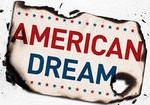 Much has been made of the declining American middle class in this election cycle. Each presidential candidate is vowing to bring back the middle class. But how did we get to the point in which the middle class needs rescuing? Who’s to blame for the collapse of the middle class and what can be done about?
Much has been made of the declining American middle class in this election cycle. Each presidential candidate is vowing to bring back the middle class. But how did we get to the point in which the middle class needs rescuing? Who’s to blame for the collapse of the middle class and what can be done about?
Investigative reporters Donald Bartlett and James Steele have written a disturbing and heartbreaking answer to these questions. Their new book, THE BETRAYAL OF THE AMERICAN DREAM [Public Affairs, 2012], chronicles how, “for more than thirty years, government and big business have conspired to roll back the American Dream.” Using clear and indisputable data, Bartlett and Steele craft a narrative of how the economic elite have co-opted the legislative process, manipulated the tax code and used outsourcing and globalization to destroy the American dream for millions of Americans.
James B. Steele and Donald L. Barlett are one of the most widely acclaimed investigative reporting teams in American journalism. They are the only reporting team ever to have received two Pulitzer Prizes for newspaper reporting and two National Magazine Awards for magazine work. This is their eighth book together.
Drew Adamek spoke to James Steele about the decline of the American middle class, who is responsible for it and what, if any, choice voters have in the next election.
Excerpt: Margot Livesy,The Flight of Gemma Hardy
Podcast: Play in new window | Download
Subscribe: Apple Podcasts | RSS

Margot Livesy reads from her novel, THE FLIGHT OF GEMMA HARDY.
Teju Cole on Art & Photography
Podcast: Play in new window | Download
Subscribe: Apple Podcasts | RSS
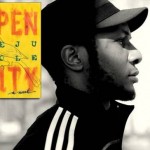
In addition to being a wonderful writer, Teju Cole is a photographer and a historian of early Netherlandish art, with an emphasis in Breughel.
Writers Voice host Francesca Rheannon talks with Cole about his perspective on photography and art in this Web-only excerpt from her interview with him.
Teju Cole black and white photography
Teju Cole color photographyÂ

